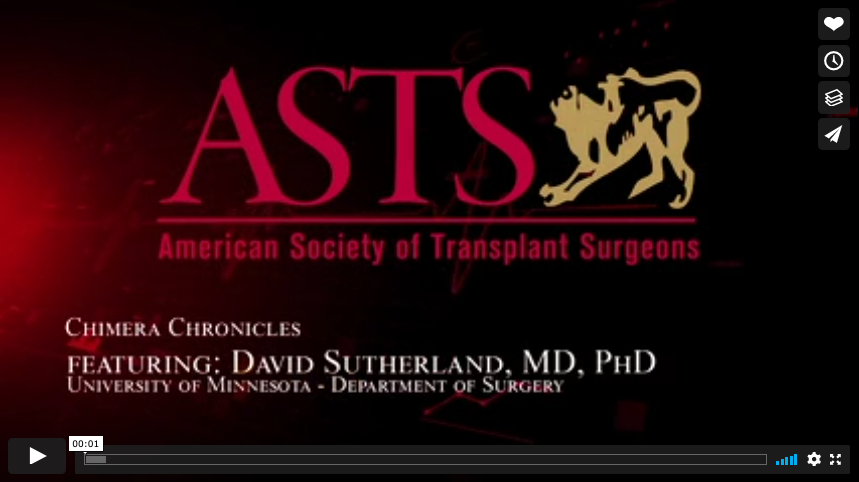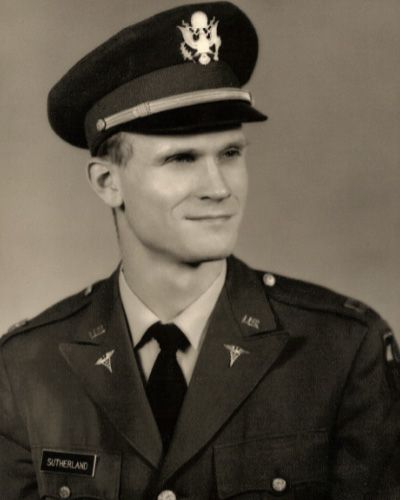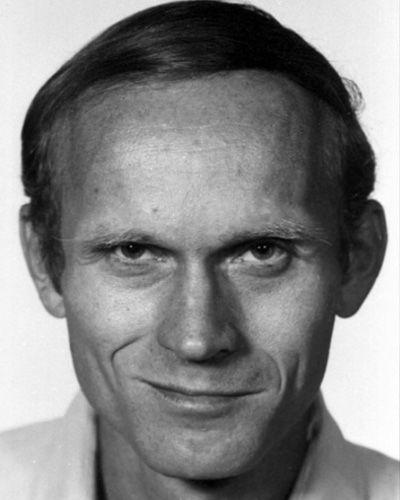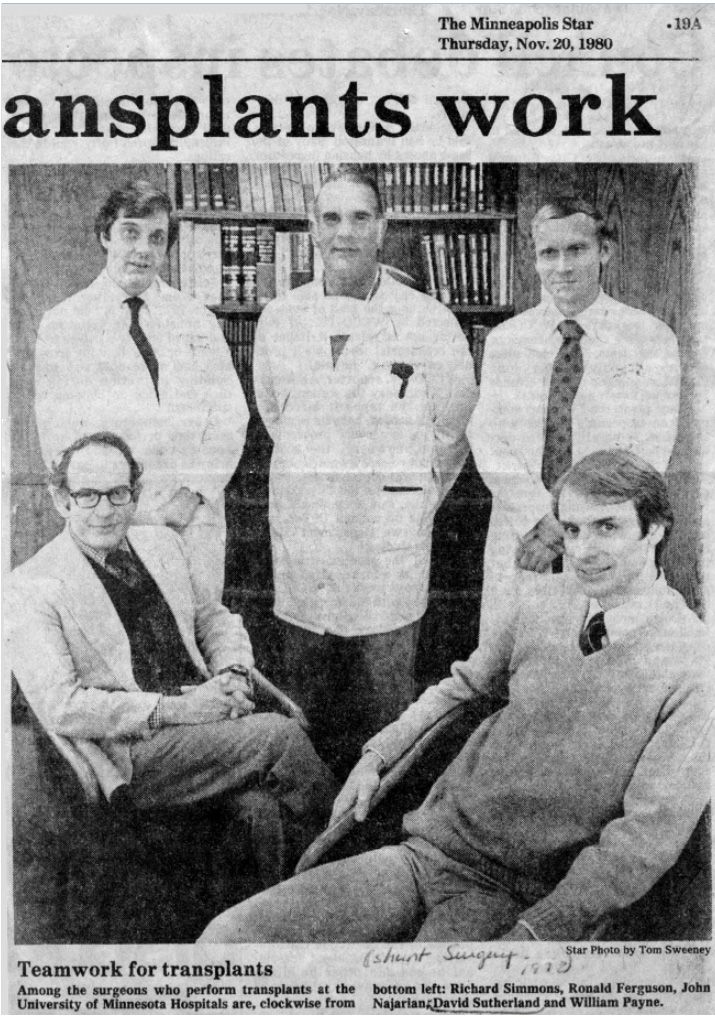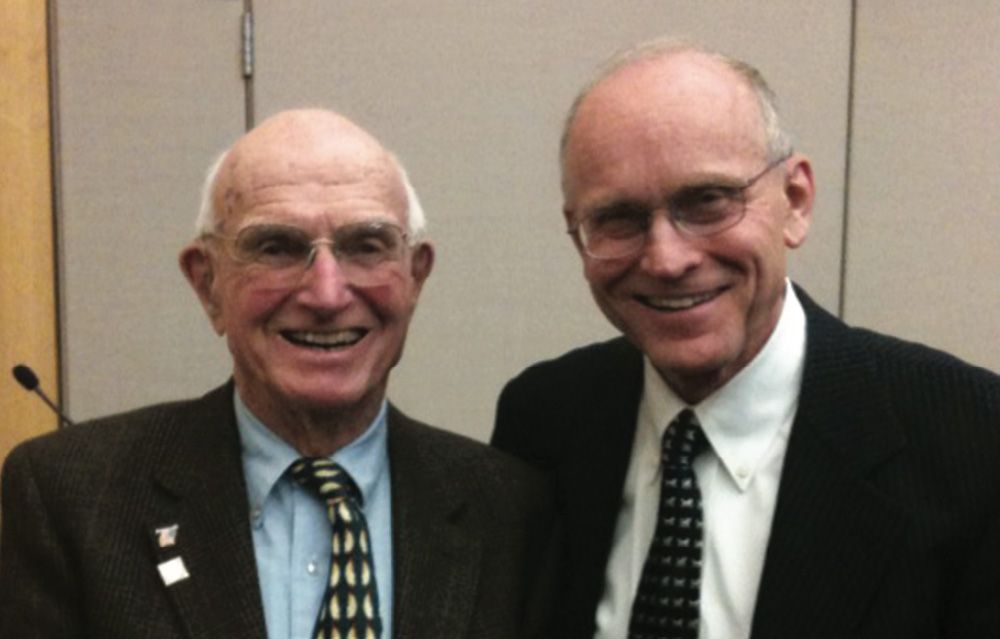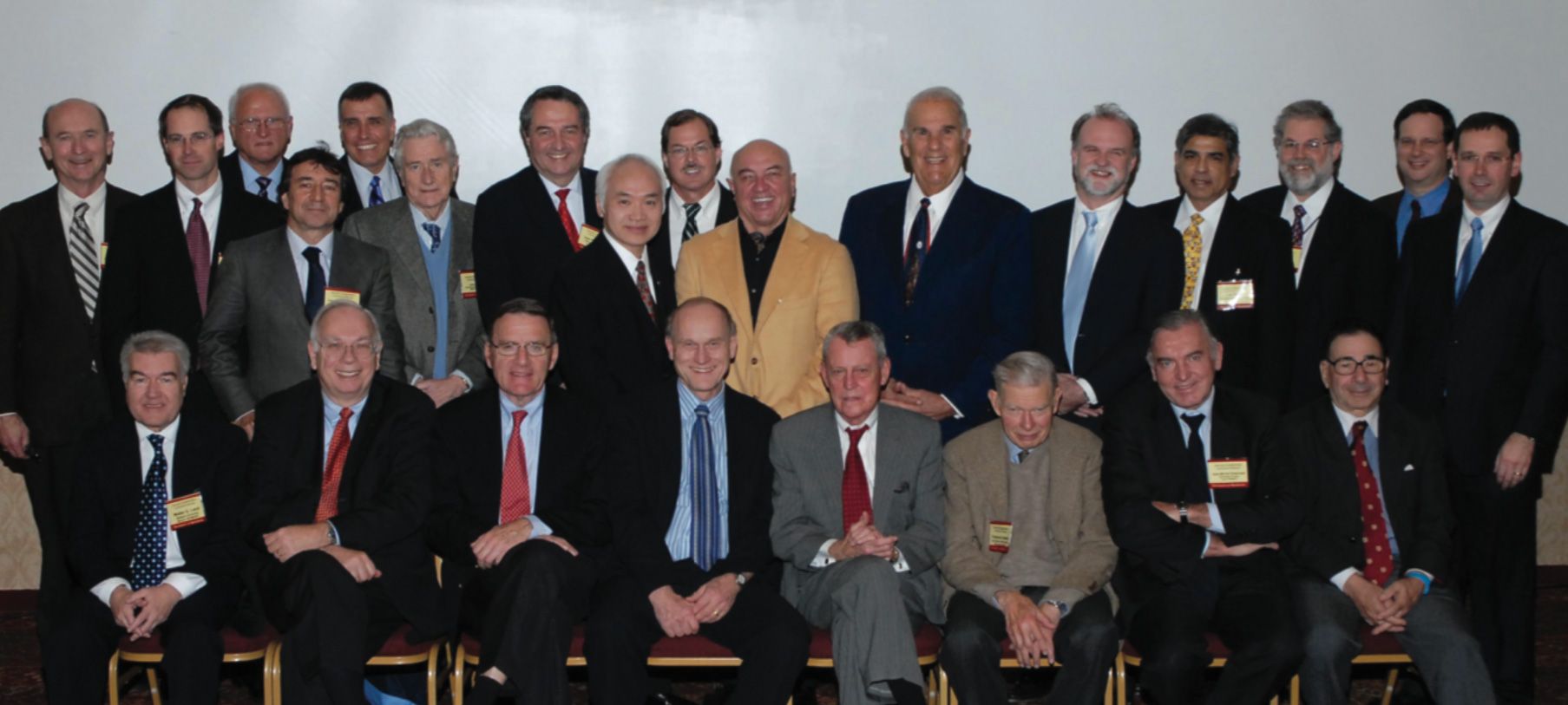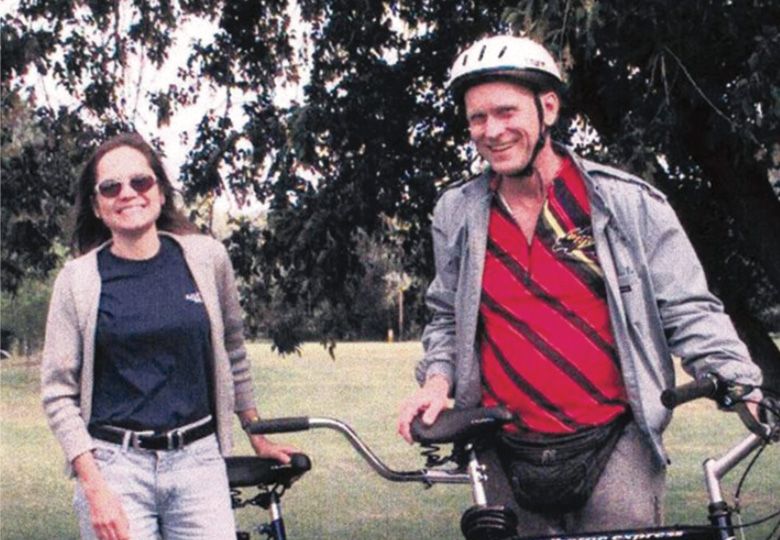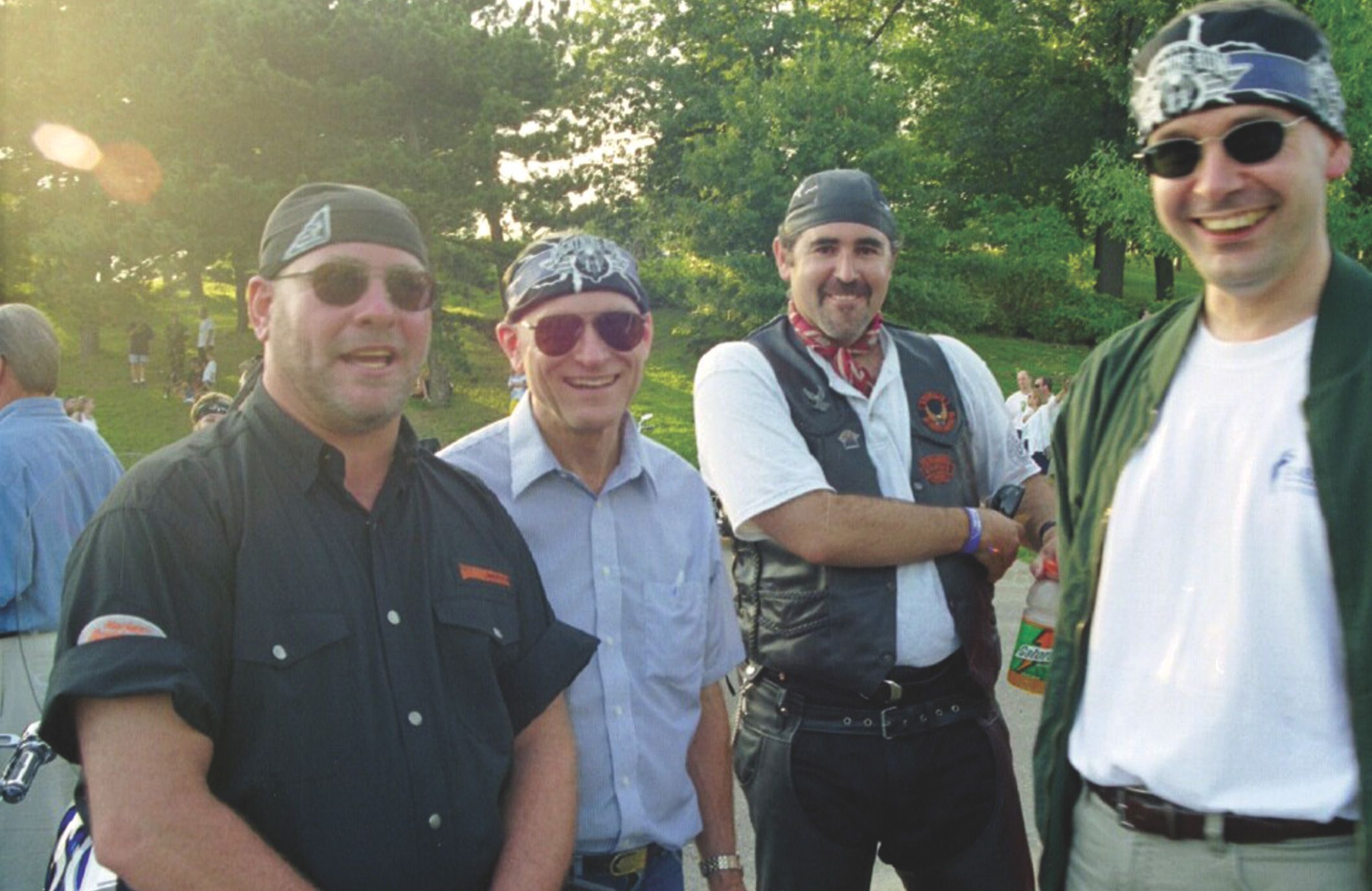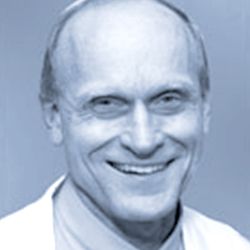
David E.R. Sutherland
Medawar Prize Laureate (2012)
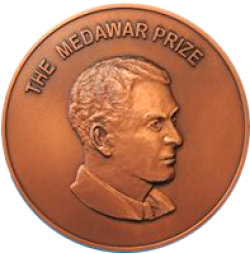
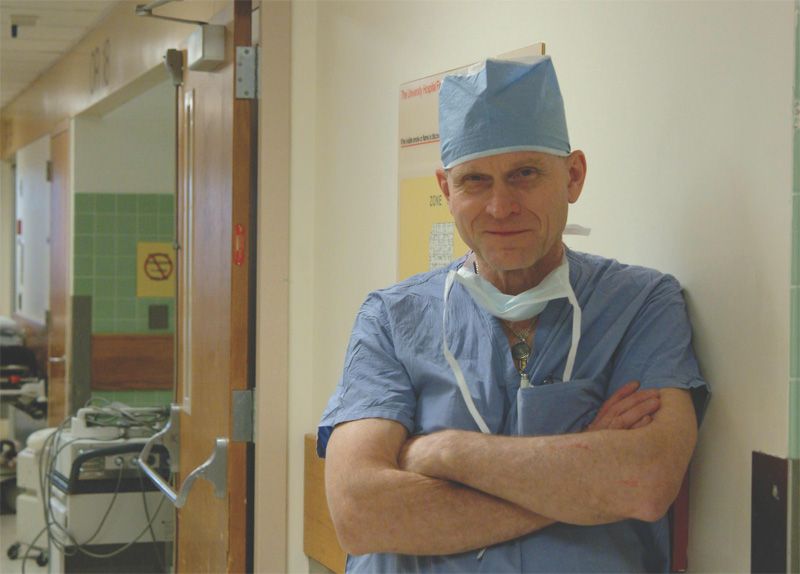
In Memoriam: Dr. David E.R. Sutherland (1940–2025)
Pioneer of Pancreas and Islet Transplantation
The global transplant community mourns the passing of Dr. David E.R. Sutherland, who died at the age of 84. A visionary transplant surgeon, scientist, and mentor, Dr. Sutherland’s groundbreaking work helped redefine the treatment of diabetes and solid organ transplantation. His legacy lives on in thousands of patients, in the programs he built, and in the many surgeons he trained around the world.A lifelong member of the University of Minnesota faculty, Dr. Sutherland performed the world’s first clinical islet transplant in 1974 and the first living-donor partial pancreas transplant in 1979. His pioneering research into islet autotransplantation for chronic pancreatitis allowed patients to retain insulin function after total pancreatectomy, transforming the standard of care for this painful and complex disease.
He served as Director of the University of Minnesota’s Pancreas Transplant Program, the oldest and largest of its kind, and later founded the International Pancreas and Islet Transplant Registry to advance collaboration and data-sharing in the field. Under his guidance, more than 2,000 pancreas transplants were performed at Minnesota, setting a global benchmark.
Dr. Sutherland’s professional influence extended far beyond Minnesota. He served as President of The Transplantation Society (2002–2004), the American Society of Transplant Surgeons, the Cell Transplant Society, and the International Pancreas and Islet Transplant Association. His many honors include the Medawar Prize (2012) and the Thomas E. Starzl Prize in Surgery and Immunology (2016).
In a tribute from 2012, his colleague and friend the late Dr. Hans Sollinger wrote:
“David’s professional life is described in some detail, but I must emphasize his great willingness to share and help everybody in the field to get better results. He was unselfish, and personally started the International Pancreas Transplant Registry, calling out around the world to ensure no case went unrecorded.”
Dr. Sollinger also reflected on Dr. Sutherland’s character in a memorable introduction for the Medawar Prize:
“David Sutherland is not only a great surgeon but the best human being I know in our field.”
His colleague Dr. Raja Kandaswamy, professor and vice chief of transplantation surgery at the University of Minnesota, described him as:
“A kind-hearted person with boundless generosity, a keen intellect and sharp wit, and the desire and willingness to help anyone in need.”
Known for his high-speed speaking style and overflowing office stacked with journals and data, Dr. Sutherland was as energetic as he was brilliant. He trained over 100 transplant surgeons, many of whom have gone on to lead major programs across North America, Europe, and Asia.
Perhaps most poignantly, Dr. Sutherland was also a living kidney donor—donating to his beloved wife, Vanessa. His act of personal generosity mirrored the compassion he brought to every patient and professional relationship.
Dr. David E.R. Sutherland’s influence will endure for decades to come. His work not only extended lives—it built institutions, inspired generations, and redefined what was possible in organ and cell transplantation. He was a surgeon of uncommon vision, a mentor of unmatched generosity, and a human being of profound decency.
The Medawar Prize 2012, Dr. David Sutherland
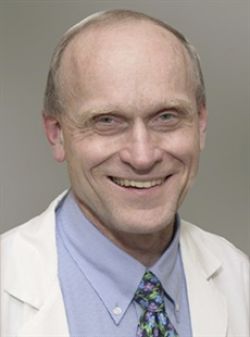
TTS is fortunate to have a great wealth of scientific talent among its membership. This year, the Medawar Prize Committee received nominations for many qualified individuals who have greatly contributed to transplantation. The winner of the 2012 Medawar Prize recipient is Dr. David E.R. Sutherland.
It is a great honor to announce Dr. David Sutherland as the 2012 recipient of the Medawar Prize of TTS.
I met Dr. Sutherland for the first time in the fall of 1975. I visited the University of Minnesota (UM) to learn more about islet transplantation. On my punctual arrival at this office, he was nowhere to be found and his secretary apologized for not being able to offer me a seat in his office, but I did have a glance at this place and quite frankly I have never seen anything close to an office like this. The four walls of his office were stacked from the floor to the ceiling with reprints and books. Even the window was partially covered. Of course, the desk was full of all kinds of paperwork and I had the feeling if I just made the wrong move the entire construction would collapse. David arrived approximately 45 min late in scrubs and a white coat, which was two sizes too large for him. He said “we talk while we are walking” and continued at a rapid pace to various places in the hospital, frequently interrupted by pages and residents. He also talked so fast that, given I had just arrived in the United States from Germany, I could only understand fragments of what he was talking about. Finally, after several hours, he took me to the faculty club where we had a nice and reasonably quiet lunch. From this point on, David and I stayed in frequent contact and over the years became friends. When I started the pancreas transplant program at the University of Wisconsin in Madison, I did expect that some competition would evolve. But just the opposite occurred. Dave and I communicated on difficult cases, exchanged the latest news, and took care of each other’s patients. David’s professional life is described here in some detail, but I have to emphasize his great willingness to share and help everybody in the field to get better results. David is unselfish and personally started the International Pancreas Transplant Registry, calling out around the world in order not to miss any cases. His presentation style became legendary. He usually showed dozens of slides more than his time allowed and compensated for it by speaking extremely fast. Over the years, my wife and I always looked forward to seeing David and his wife Vanesa at meetings. The Sutherlands were a very special couple and David’s enduring and special care for Vanesa touched many of us. I think Carl Groth said it best a few years ago when he introduced Dr. Sutherland at a meeting when he said “David Sutherland is not only a great surgeon but the best human being I know in our field.”
Dr. Sutherland started his research career in immunology under the mentorship of Dr. Robert A. Good at the UM Medical School and graduated in 1966. He then interned at West Virginia University, served 2 years in the U.S. Army, and completed his surgery residency and a transplant fellowship at the UM. In 1976, he joined the university faculty, where he has spent his entire career. He received his Ph.D. in 1977, was promoted to professor of surgery in 1984, and was head of the Division of Transplantation from 1994 to 2009. He founded and has been the director of the UM Diabetes Institute for Immunology and Transplantation since 1994, and is holder of the Dobbs Diabetes Research Chair.
As a transplant surgeon, Dr. Sutherland has trained numerous surgeons heading organ and pancreatic transplant programs worldwide and has overseen more than 2000 pancreas transplants at the UM. He performed the world’s first clinical islet transplant in 1974 alongside his mentor Dr. John Najarian, and he developed minimally invasive β-cell replacement (BCR) therapy as an alternative to insulin therapy or pancreas transplantation to treat diabetes. He also initiated the preservation of β-cell mass by islet autotransplantation at the time of total pancreatectomy for chronic pancreatitis in 1977, with nearly 435 such procedures completed to date. In 1980, Dr. Sutherland founded the International Pancreas Transplant Registry.
Dr. Sutherland has been of service for national and international organizations and societies, including serving as president of TTS (2002–2004), the International Pancreas and Islet Transplant Association (1996–1997), the Cell Transplant Society (1994–1996), and the American Society of Transplant Surgeons (1990–1991). He has also served on the editorial boards of many journals, including Cell Transplantation, Diabetes, Transplantation, Transplantation Proceedings, and Pancreas. He has been editor-in-chief for Clinical Transplantation since January 2007.
Dr. Sutherland’s principal scientific achievement is his being the major force in the development of BCR for the treatment of diabetes. In the early 1970s, he began work on islet transplantation to make BCR minimally invasive. He recognized the long-term challenges and simultaneously refined techniques of pancreas transplantation to avoid problems that plagued earlier series. In the late 1970s, he resurrected clinical pancreas transplantation at the UM, while persevering with islet research.
In 1977, Dr. Sutherland showed that islet autografts could preserve insulin secretion after total pancreatectomy for chronic pancreatitis, establishing a new treatment of the disease, now proved metabolically durable. The first successful series of single-donor islet allografts occurred under his direction. In 1980, he established the International Pancreas and Islet Transplant Registry, one of the most useful registries, publishing outcome analyses for nearly 30 years.
The unique contributions that Dr. Sutherland has made to pancreas transplantation include the first living-donor segmental graft (1979), aiming not simply to solve organ shortage but to decrease the rejection rate in the pre–calcineurin inhibitor era. He also first described isletitis with selective β-cell destruction and recurrence of diabetes in pancreas isografts (identical-twin donors) and allografts (1984), a key observation in establishing the disease as autoimmune. Finally, more than anyone in the field, he emphasized pancreas transplant alone in nonuremic patients whose diabetes was more severe than the adverse effects of immunosuppression, comprising a quarter of the first 1000 cases at the UM, a series now of greater than 2000 transplants. The field could not have developed as it did without Dr. Sutherland’s passion and numerous contributions.
Sollinger, Hans
Transplantation Journal: January 15, 2013 - Volume 95 - Issue 1 - p 8-14
TTS Presidential Address - 2004 Congress
Presidential Address to The Transplantation Society, 2004: Accomplishments, Ethics, and Scientific Perspectives
Transplantation: May 15th, 2005 - Volume 79 - Issue 9 - p 1000-1007
Thank you, Dr. Groth, for the kind introduction. Our long-standing friendship made it special for me to succeed you as president of this great society. The Transplantation Society (TTS) was the first organization devoted to the specialty of organ replacement therapy. I gave a brief history of TTS in my welcome address to open the XX International Congress held in Vienna in September 2004. TTS was an international society from the beginning: being so fostered an intellectual exchange on a large scale, facilitating scientific progress and clinical application.
Highlighted Videos
David E.R. Sutherland on Richard Lillehei
David E.R. Sutherland pays tribute to Richard Lillehei: The Man, His Pioneering Work in Transplantation and his Legacy in Beta Cell Replacement Therapy. Presented at the 2013 International Pancreas & Islet Transplant Association (IPITA) Congress in Monterey, CA, USA.
Interview with David E.R. Sutherland
Dr. Sutherland discusses how he started in transplantation, clinical transplantation, TTS in 50 years, TTS' contributions to the field, some unexpected developments, future concerns, why transplant professionals should join TTS, his friend Carl Groth and on those who influenced him.
Contact
Address
The Transplantation Society
International Headquarters
740 Notre-Dame Ouest
Suite 1245
Montréal, QC, H3C 3X6
Canada
Используйте Вавада казино для игры с бонусом — активируйте промокод и начните выигрывать уже сегодня!

